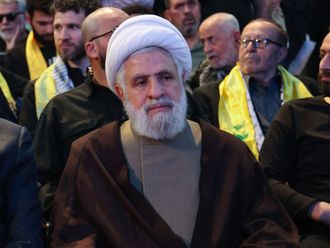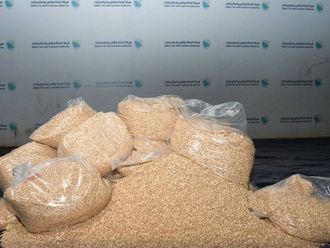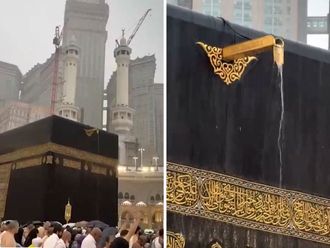Gaza: Israeli forces began demolishing several buildings near the Karni commercial crossing recently in order to remove the entire crossing which had already been permanently closed for the past nine months.
This will eliminate one of Gaza's main economic gateways used to provide the Strip with commodities and goods. It was also used to export Palestinian agricultural and industrial products from the Gaza Strip to the West Bank and the outside world.
Israel justified this move, saying it was due to the fear of Palestinian attacks, but Palestinians believe this move was taken so that Israel can absolve itself of responsibilities towards the Strip .
Samer Zaqout, from Al Mezan Centre for Human Rights, said: "Israel wants to separate Gaza politically and economically from the West Bank and [this] is also an evasive step by the Israeli occupiers to assume responsibilities towards the Gaza Strip."
"Destroying this crossing is contrary to both the Oslo agreement and Paris commercial agreement between the Palestinian authority and the Israeli side," Zaqout said.
Entrenchment of siege
Hamas spokesman Sami Abu Zuhri said, "Destroying the crossing impedes the movement of goods and individuals inside and outside the Strip."
Hamas rejected the move, saying such a step means tightening the blockade imposed on Gaza since 2007 and entrenchment of the Israeli siege on Gaza.
"Leaving only one crossing operating between Israel and Gaza will aggravate the sufferings of Palestinians in the besieged Strip," Abu Zuhri said.
The strip has four crossings through which vital supplies can be brought in from Israel — Sufa, Nahal Oz, Kerem Abu Salem and Karni. Only Kerem Abu Salem, a small crossing located at the south of Gaza, is allowed by Israel to function fully.
Karni crossing, Gaza's largest, has the capacity to handle 500 truckloads of imports and 250 truckloads of exports daily.
Karni, known to Palestinians as Al Muntar, has functioned intermittently for the past 16 years, ever since Israel and the Palestine Liberation Organisation signed the Oslo accords in 1993.
Since the closure of Karni last March, the Israeli side made sure that all goods brought into the Gaza Strip would have to go through the Kerem Abu Salem crossing.
Increased fees
The geographical position of Karem Abu Salem crossing burdens customers and merchants with additional losses, resulting from the long-distance transportation of goods, increased transfer fees, and increased loading and unloading fees.
The working capacity of Karem Abu Salem is not sufficient for the level of commercial exchange between Gaza and the West Bank and between Gaza and Israel which would result in the event that the Israeli siege was lifted.
Officials in Gaza believe that the demolition of the crossing, whose building cost millions of dollars, will inflict a great loss on Palestinians.
Dr Maher Al Tabaa, manager of the chamber of commerce, said, "Destroying the crossing removes any future hopes for Palestinian traders in reducing their expenses.
"Palestinian traders are forced to pay higher costs and wait longer for shipments to enter into Gaza from the Karem Abu Salem crossing instead of the Karni crossing," he said.
Israel imposed the siege on Gaza in 2007 and declared the coastal strip a hostile entity when Hamas took control of the territory after the movement won the parliamentary elections the year before.












